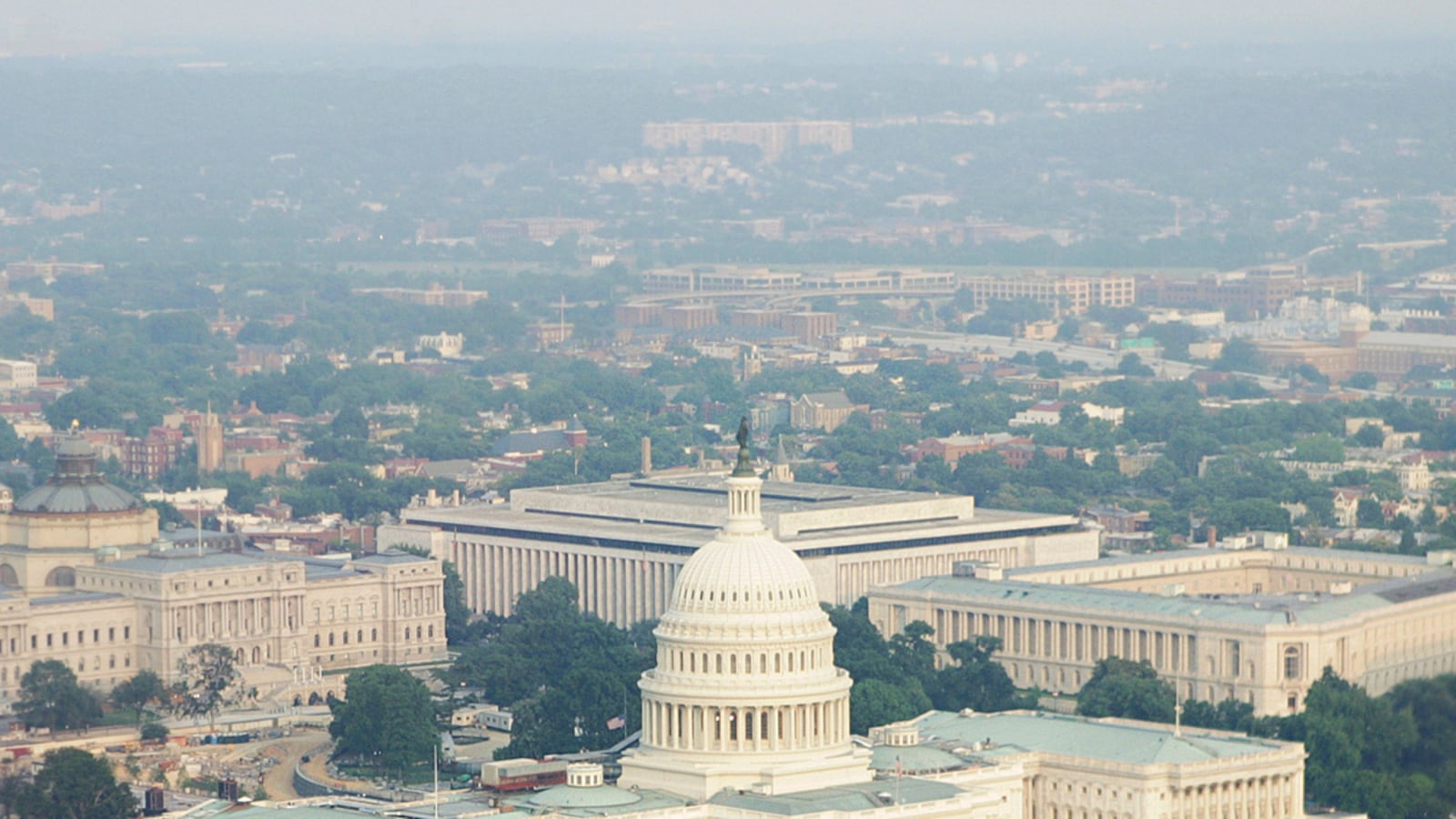Seven years after moving from the federal capital to a federal prison, former congressman (and top gun Navy pilot) Randy “Duke” Cunningham (R-CA) is going home. Convicted of bribery for trying to sell defense contracts for $2.4 million in cash and yachts, Cunningham was sentenced to what was then the harshest punishment ever meted out to a bribe-taking congressman.

The United States Congress needs the likes of Cunningham. Because the rare conviction of a member doing something plainly wrong reaffirms the claim of the others on Capitol Hill that they are not like him. Cunningham was a crook. He engaged in classic quid-pro-quo bribery. But no one credible believes that there are many more that stupid or perfidious. Congress is filled neither with top guns nor with craven criminals. And therefore, its leaders would have us believe, Congress is not corrupt.
But what the conviction of Cunningham should teach us is not that other members Congress should be trusted, but that the line the law polices is the wrong line. Sure, Cunningham was an exception, along with the man who broke his record for harshest sentence, William Jefferson (D-LA), who began a 13-year sentence last year, after federal agents found $90,000 in his freezer and tied that money to a $400,000 bribe. But corruption on Capitol Hill, in the plain meaning of the term that the Framers of our Constitution would have recognized, is endemic.
Cunningham reduced his deal to a very explicit transaction—literally, he wrote it down. In a bizarre note scribbled on his office stationery, Cunningham gave his co-conspirators a simple (if confused) schedule of how much it would cost to get the defense contracts they were seeking. What made his behavior a crime was this quid pro quo—not just that he would benefit personally; Cunningham would have been just as guilty if the payment was to be a campaign contribution rather than a yacht.
Such blatant exchanges don’t happen much—either for personal or for political benefit. But a more complicated dance certainly does. As lobbyists make their clients' cases to members of Congress, those members certainly know just how much those lobbyists have helped. That help isn’t a crime. Indeed, lobbyists are meticulous in keeping their behavior within formal ethical lines. But even within those lines, influence is peddled. And for members starved for campaign funds, even a very little bit can go a long way.
The economy of that dance plainly corrupts Congress. Because rather than staying focused—as Madison promised they would be—“upon the People alone,” Congress is increasingly focused upon it funders.
Yet those funders are not America. They are the tiniest slice of America. No more than 1/20th of 1 percent of us give enough to count as a relevant funder of a congressional campaign. And as members spend hours every day frantically trying to find some of that 0.05 percent who might help, they learn the words their funders want to hear. Remember the Skinner Box—a rat in a cage frantically trying to figure out which buttons it must push to get its pellets of food—and you have a good sense of the life of a congressman.
That dance does more harm to the Republic than an aircraft carrier full of Randy “Duke” Cunninghams ever could. For it is that sort of influence that steered Congress to deregulate Wall Street, that drives Congress to ignore climate change, and that says Congress can pass health-care reform only by including a $250 billion subsidy to insurance companies and Big Pharma.
Yet there’s nothing in the law to police this sort of corruption. Indeed, if Justice Kennedy really believes his own rhetoric in Citizens United, it may well be that the First Amendment would even ban an effort to limit this sort of corruption. And thus are we protected against the harmless sins, but are constitutionally required to remain vulnerable to radically more harmful ones.
Cunningham is a reminder of what’s not wrong with Congress. Congress is not a bunch of crooks. What Congress is is a democratic institution that, according to the latest Rasmussen Poll, can’t even garner more than 6 percent of the public’s approval. And that’s not because we don’t like what Congress does. It is instead because, as John R. Hibbing and Elizabeth Theiss-Morse have powerfully demonstrated, we “believe special interests have hijacked the political process.” They—meaning almost all of Congress, not just the Cunninghams—are not in it for us, most of us believe. They’re in it for the funders and the funder’s agents, the lobbyists.
There are many contexts in which the law is obsessed with the relatively harmless sins while oblivious to undeniably harmful ones. But there is none as significant as this. America’s government doesn’t work because it refuses to grok this most obvious of corruptions. And until it does, it’s not just defense contracts that will get lost. It is practically every important decision that our government must make.






